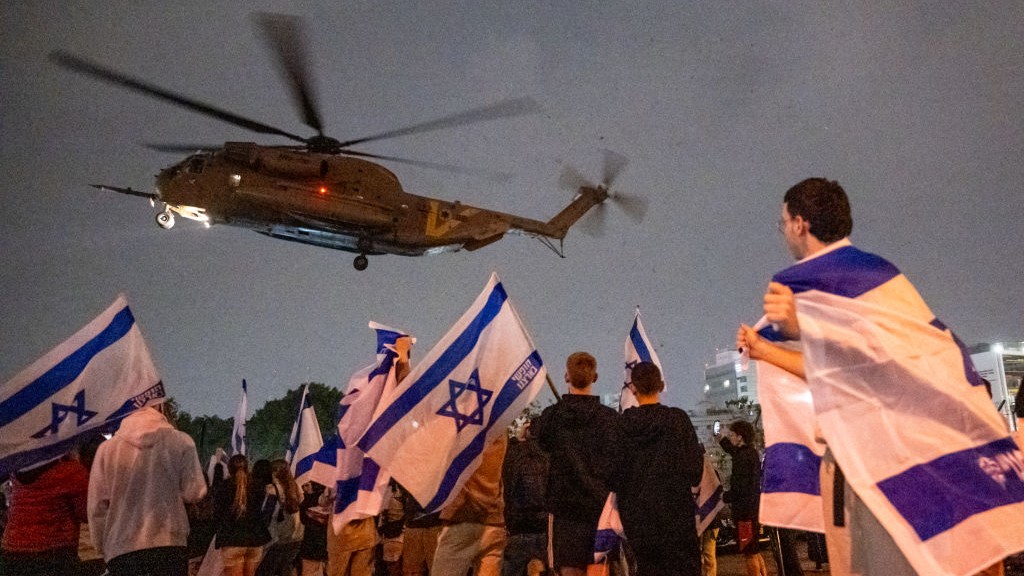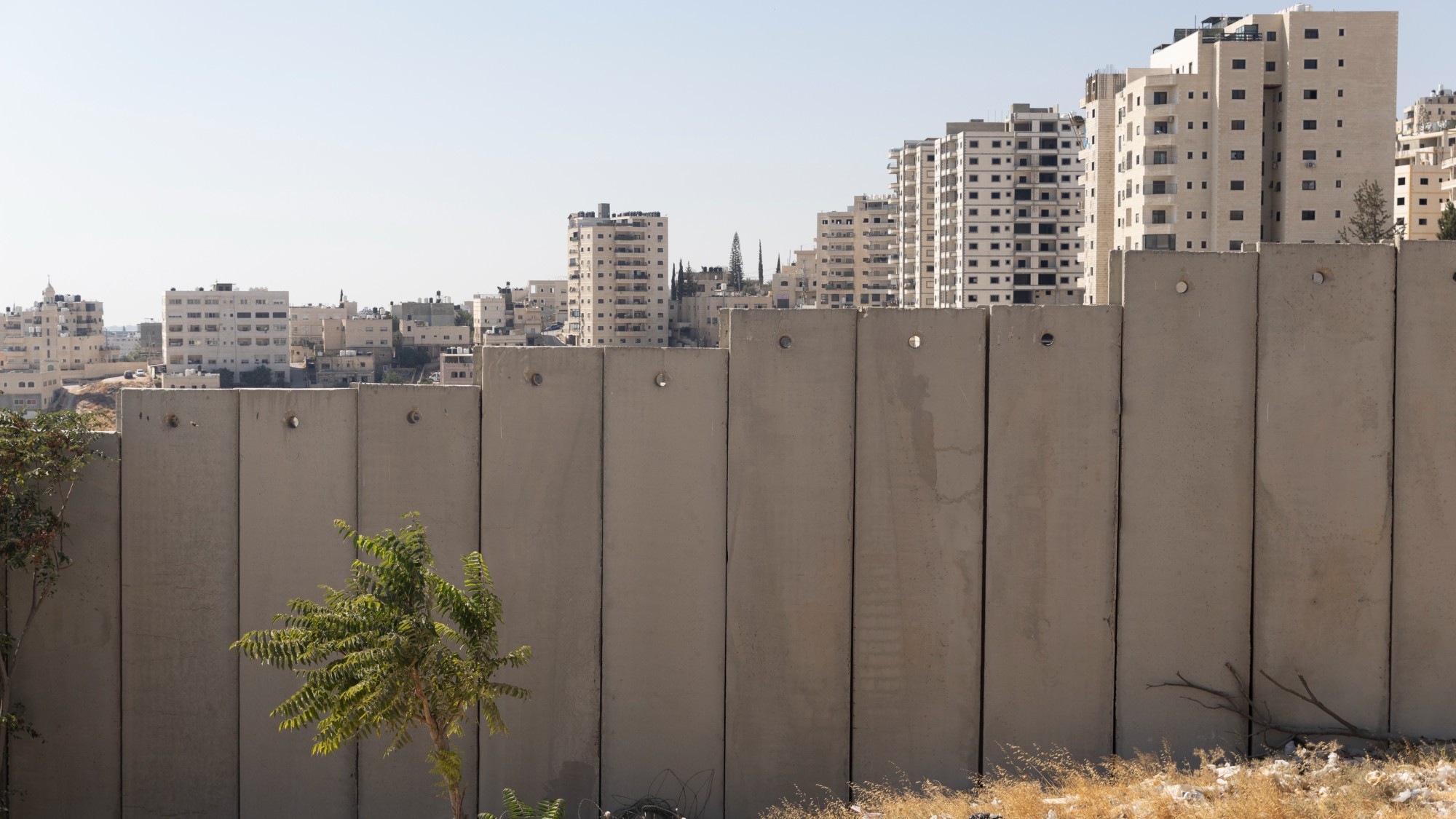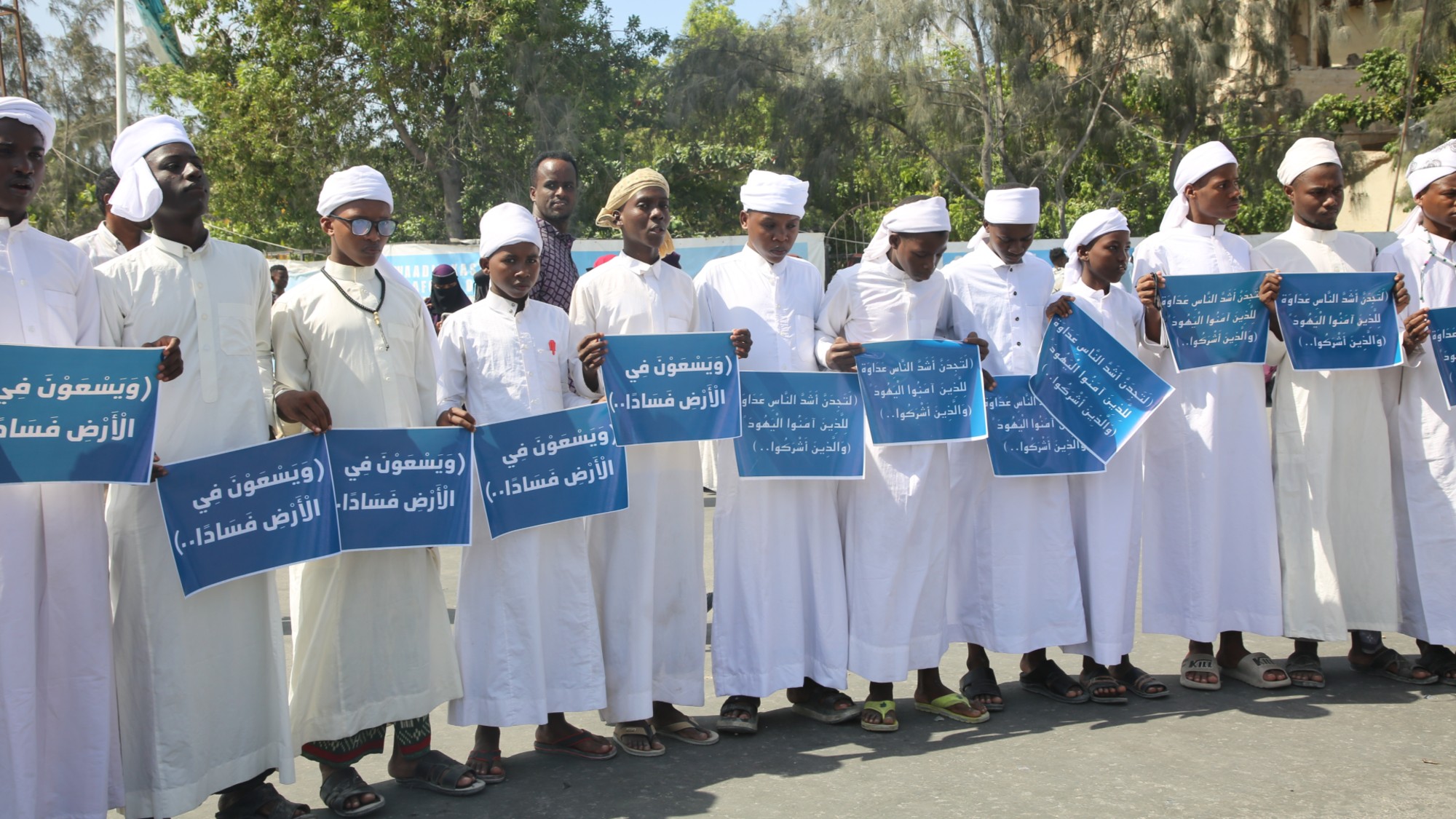How a long-term truce in Gaza could have ripple effects across the Middle East
Israel and Hamas have recently agreed to extend their peace for two more days


A free daily email with the biggest news stories of the day – and the best features from TheWeek.com
You are now subscribed
Your newsletter sign-up was successful
Israel and Hamas originally agreed to a four-day truce that would cease the fighting to allow for the release of hostages held by Hamas and Palestinian prisoners held by Israel. Both sides agreed to the temporary peace, and on Monday, it was announced that they had renegotiated the truce for an additional two days after pressure from numerous foreign countries, NGOs and diplomats.
Mediators of the deal, especially Qatar, said they were hopeful this could lead to a potential long-term cease-fire in the region. This is something that officials from both sides, including Israeli Prime Minister Benjamin Netanyahu and senior Hamas leadership, have left the door open to. The two-day extension would allow the release of 20 additional hostages from Hamas, a White House official told The Times of Israel, while the number of Palestinian prisoners that would be released by Israel is unclear.
This new deal could present an opening for mediators to hatch a longer pause in the violence. But if this continuing truce were to be extended into a long-term deal, what would it mean for Israel and Gaza? And beyond this, what would it mean for the Middle East as a whole?
The Week
Escape your echo chamber. Get the facts behind the news, plus analysis from multiple perspectives.

Sign up for The Week's Free Newsletters
From our morning news briefing to a weekly Good News Newsletter, get the best of The Week delivered directly to your inbox.
From our morning news briefing to a weekly Good News Newsletter, get the best of The Week delivered directly to your inbox.
Strategic problems for both sides
The details of the short-term extension are still being hashed out, but Israeli government spokesperson Eylon Levy previously wrote on X, formerly Twitter, that the terrorist group "can extend that pause by a day for every 10 hostages it gives us back."
President Joe Biden said during a press conference this weekend that it was "our goal to keep this pause going beyond tomorrow so that we can continue to see more hostages come out and surge more humanitarian relief into those in need in Gaza." But a long-term extension of the truce — and the exchange of hostages for prisoners — could "pose strategic problems for both Israel and Hamas," Christian Edwards wrote for CNN.
Part of the issue is that some of the hostages are held by other militant groups, such as the Palestinian Islamic Jihad, and not Hamas. But the ongoing agreement requires that Hamas, and not any other organization, hand over the hostages. As a result, "there is likely to be a limit to the number of hostages Hamas will be willing to free since it will be unwilling to surrender the leverage it has over Israel," Edwards wrote.
Given that Hamas' negotiating strength is almost totally based around the hostages, the group's promise to release them "has been the only thing that caused Israel to relent in seven weeks of fighting," Edwards added. And given Israel's push to have all the hostages freed, a long-term truce "might make its ultimate war aim — of destroying Hamas — harder to achieve," Edwards said.
A free daily email with the biggest news stories of the day – and the best features from TheWeek.com
Growing Qatari power
The most glaring effect of a long-term truce, though, could be the continued influence of Qatar on the overall state of Middle East affairs. The small nation was instrumental in brokering the refreshed cease-fire, and Qatari Prime Minister Mohammed bin Abdulrahman Al-Thani told the Financial Times he was hopeful that a long-term deal could be maintained.
The work between Qatar and Israel "marked an extraordinary moment for the two countries, which have no official diplomatic relations," Isabel Debre reported for The Associated Press. Qatar's influence in the deal "also underscored the major role of the tiny emirate in bridging differences between the enemies," Debre added.
This type of relationship "is something we've never seen before," Yoel Guzansky, a senior fellow at Tel Aviv's Institute for National Security Studies, told the AP. Qatar is also home to the Middle East's largest American military base, and as a result, is "uniquely positioned to break deadlocks in the cease-fire talks" that have also involved the U.S.
It is clear that Qatar is using its strategic location in the center of the region "to wield political influence and project soft power around the world," Debre wrote. Even prior to the extension's announcement, Qatar cemented itself "as Washington's preferred interlocutor with extremist groups and pariah states," Stephen Kalin wrote for The Wall Street Journal. However, a long-term deal could also present a risk to Qatar, Kalin added, as the country's "willingness to talk to extremist groups has left it open to allegations from its neighbors and others that it supports terrorism."
Justin Klawans has worked as a staff writer at The Week since 2022. He began his career covering local news before joining Newsweek as a breaking news reporter, where he wrote about politics, national and global affairs, business, crime, sports, film, television and other news. Justin has also freelanced for outlets including Collider and United Press International.
-
 ‘Bad Bunny’s music feels inclusive and exclusive at the same time’
‘Bad Bunny’s music feels inclusive and exclusive at the same time’Instant Opinion Opinion, comment and editorials of the day
-
 Is the Gaza peace plan destined to fail?
Is the Gaza peace plan destined to fail?Today’s Big Question Since the ceasefire agreement in October, the situation in Gaza is still ‘precarious’, with the path to peace facing ‘many obstacles’
-
 ‘Human trafficking isn’t something that happens “somewhere else”’
‘Human trafficking isn’t something that happens “somewhere else”’Instant Opinion Opinion, comment and editorials of the day
-
 How Iran protest death tolls have been politicised
How Iran protest death tolls have been politicisedIn the Spotlight Regime blames killing of ‘several thousand’ people on foreign actors and uses videos of bodies as ‘psychological warfare’ to scare protesters
-
 ‘The science is clear’
‘The science is clear’Instant Opinion Opinion, comment and editorials of the day
-
 The Board of Peace: Donald Trump’s ‘alternative to the UN’
The Board of Peace: Donald Trump’s ‘alternative to the UN’The Explainer Body set up to oversee reconstruction of Gaza could have broader mandate to mediate other conflicts and create a ‘US-dominated alternative to the UN’
-
 Israel’s E1 zone in the West Bank: the death of the two-state solution?
Israel’s E1 zone in the West Bank: the death of the two-state solution?The Explainer Controversial new settlement in occupied territories makes future Palestinian state unviable, critics claim
-
 ‘The security implications are harder still to dismiss’
‘The security implications are harder still to dismiss’Instant Opinion Opinion, comment and editorials of the day



